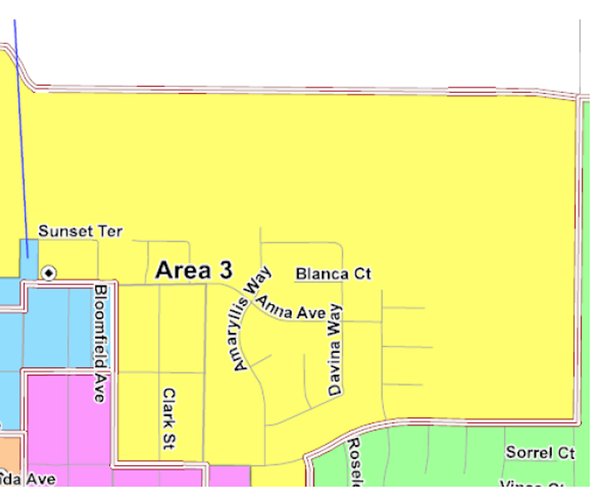Stanislaus County supervisors voted unanimously Tuesday night, Nov. 18 to overhaul parking truck parking regulations in agricultural areas, aiming to curb unpermitted operations and clarify rules for both small and large trucking businesses.
The changes will update two existing chapters of the county’s zoning ordinance and create a new chapter dedicated entirely to truck parking facilities in the General Agriculture (A-2) zone. The effort follows a steady rise in complaints since 2022, with residents reporting noise, traffic, and dust from unapproved truck yards.
For resident Christine Gemperle, who lives on Faith Home Road in Ceres, the vote is the culmination of a year-long battle.
“I feel like all the effort, all the meetings … worked,” said Gemperle, whose property abutted an unauthorized truck-parking operation. “I’m happy with what the supervisors came up with, and I can tell you that some of the stuff in the ordinance came out of my mouth or out of the mouth of the people sitting next to me.”
The new rules were developed by a special ad hoc committee led by District 2 Supervisor Vito Chiesa and Planning Commission Chairwoman Carmen Morad. Over several months, the group met with truckers, farmers, and real estate professionals, toured existing sites, and reviewed ordinances in neighboring counties.
The new ordinance will:
• Create Chapter 21.89, consolidating all truck parking rules into one section.
• Amend Chapter 21.20 to remove outdated permit language and refer applicants to the new chapter.
• Revise Chapter 21.94, reducing the number of trucks allowed under home occupation permits from three tractor-trailer combinations and three trailers to one tractor-trailer and two trailers.
Home-based trucking businesses would also face new restrictions. Trucks must be registered in California, and on-site maintenance, storage, and large-scale parking areas will no longer be allowed.
For larger facilities, the ordinance sets a minimum parcel size of 10 acres and prohibits use of land under Williamson Act contracts. Parking areas would be capped at 1.5 acres and must include fencing, landscaping, setbacks from homes and roads, and restroom access for drivers. Portable restrooms will be allowed in some cases.
To prevent clusters of truck yards, the ordinance defines “concentration” thresholds. In areas within one mile of a highway, no more than two facilities would be allowed in a one-mile radius. In more remote areas, only one would be permitted — unless separated by a physical barrier like a river or railroad.
Facilities will also be subject to annual inspections, and permits will expire after five years unless renewed. If a property changes ownership, the permit will automatically expire and require reapplication.
Chiesa was impressed with Gemperle’s doggedness to see the changes made.
“Christine has spent more time on this issue than anyone I have ever known to spend on a single issue,” said Chiesa. “This was our best shot at it. Is this perfect? I don’t know, but I think it’s a good product. I think it will be a work in progress and we may find more issues for which we’ll have to come back to the board, but I think this is really good.”
The Planning Commission held a public hearing in October to review the proposed changes. Commissioners asked about enforcement staffing, road impacts, restroom requirements, and whether the rules would affect trucks serving agricultural operations.
Staff confirmed that agricultural service trucks would still be allowed under separate rules and that the county’s code enforcement division has the capacity to handle inspections. They also noted that new conditions could be added during the permit renewal process to address road wear and other impacts.
The commission voted 7-0 to recommend approval to the Board of Supervisors.
The new rules would apply to future permit applications, new home-based trucking businesses, and any existing operations that need to reapply due to lapsed permits.
Four pending applications for truck parking facilities would not qualify under the new rules due to parcel size or location limits.
“This is kind of my first time being involved in rules and regulation and policy,” said Gemperle. “We’ll see, from this point forward, what happens with enforcement. But I feel that because we spoke so strongly over the last year, and because the county put in so much work, it will make a difference.”
- Staff reporter Sabra Stafford contributed to this report.





